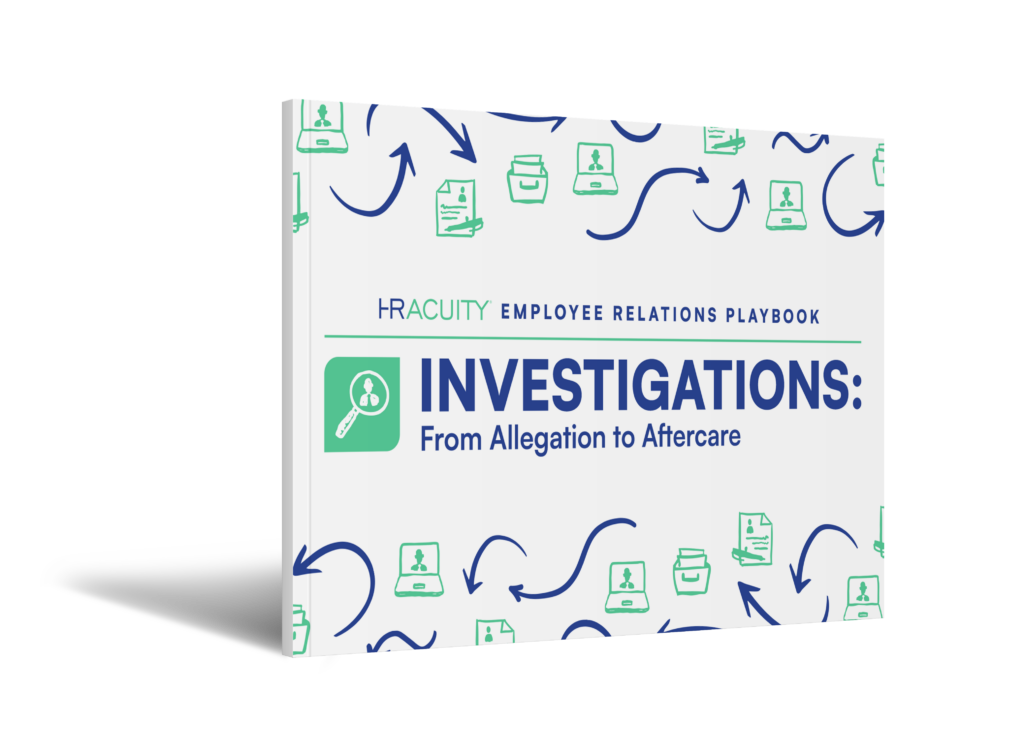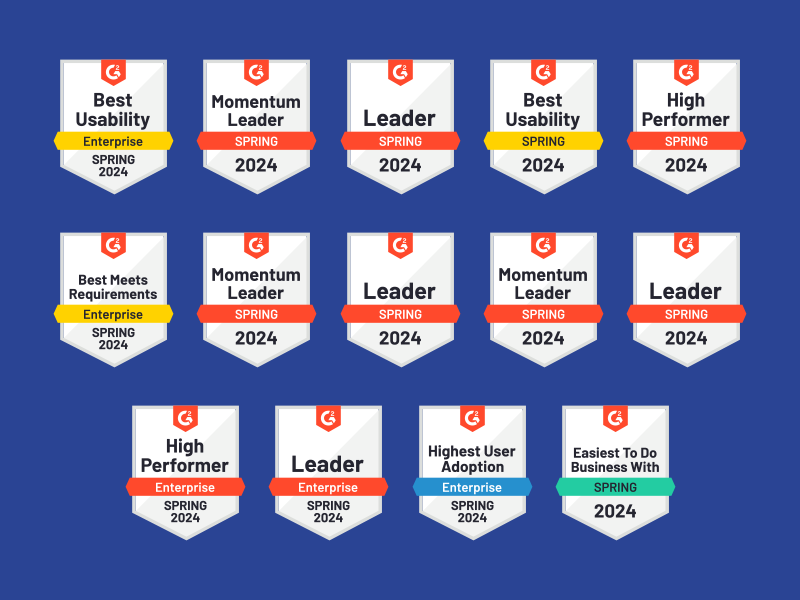Workplace investigations are difficult for everyone involved, whether you are the accused, the complainant or the HR professional charged with making sense of conflicting reports. As the HR professional, having to explore a scenario, determine who is telling the truth and decide how to handle the outcomes is not an easy task.
Complainants in an investigation need to know that you not only have their best interests in mind, but that you plan to do what you can to see that their complaint is handled in a timely, impartial manner. At the same time, the accused employee needs to be treated with respect — after all, there are times when accusations may turn out to be false.
Whatever the case, interviews are the most critical piece in collecting evidence during an investigation, and you’re on hand to make sure that the situation is handled appropriately by asking the right investigation meeting questions.
Table of Contents
HR Investigation Questions for the Reporter
The investigation meeting questions you ask can make or break your procedure. Making sure that you don’t ask leading questions or put words in the employee’s mouth can be challenging, but these practices can taint the investigation from the very beginning. With that in mind, here are 10 key examples of workplace investigation questions that can help start the process on the right foot when interviewing the employee who made the complaint:
- Who committed the alleged behavior?
- What happened?
- When did this occur? Is it ongoing?
- Where did this happen?
- Did you let the accused know that you were upset by this?
- Who else may have seen or heard this as a witness?
- Have you reported or discussed this with anyone? If so, who did you tell, when did you tell them and why?
- How has this affected you?
- Is there any electronic or physical evidence to document this occurrence?
- Do you have any other information that might be helpful to this investigation?
HR Investigation Questions for the Witnesses
Any lawyer or police officer will gladly tell you that witness testimony that can be corroborated by multiple parties is much more reliable to base a case on than the recollections of a single witness. The same thought can apply to employee investigations with a caveat: while legal cases hinge on what did or did not happen, employee discrimination and workplace harassment cases can hinge on implied or perceived intent. The entire weight of evidence and documentation must be evaluated to come to an equitable conclusion.
Here are 15 questions to ask any witnesses in the case:
- Can you recount your observations of the situation in question?
- Provide details on when and where the incident took place.
- Identify individuals present at the scene besides yourself.
- Did you overhear any conversations during the incident?
- Did any actions or behaviors strike you as particularly concerning or alarming?
- Did you notice anyone displaying signs of distress or discomfort during the incident?
- Have you observed similar behavior in the past?
- Were there any actions or behaviors leading up to the incident that you consider relevant?
- Describe any conversations or interactions you had with the involved parties before or after the incident.
- Are there other witnesses to the incident, and if so, can you share their contact information?
- Did anyone make comments that you perceived as discriminatory, harassing, or retaliatory?
- Is there any additional information you believe is crucial for the investigator to be aware of?
- How did the incident make you feel based on your observations?
- Were you comfortable reporting what you witnessed to HR or your supervisor? If not, what hindered your comfort?
- Is there anything else you would like to contribute or clarify about your observations during the incident?
A key principle you’ll want to maintain during investigations is consistency. Ask each witness the same questions. If a follow-up with one witness leads you down an unexpected trail, it’s absolutely okay to go back to other witnesses to ask those same types of follow-up questions.
HR Investigation Questions for the Accused
When interviewing the employees accused of misconduct, it is extremely important to tread lightly and avoid any appearance of a presumption of guilt. The accused employee may be worried about their reputation, their job security or even legal ramifications. The key to interviewing an accused employee is to ensure they understand the allegations and have an opportunity to rebut the claims, and are treated fairly and respectfully.
If possible, have two investigators present during the interview to prevent any accusations of impropriety, and be sure to record the conversation for evidence. Be aware that some states require the interviewee to consent to being recorded, so make sure you understand the laws where you operate. Here are 10 employee investigation questions to ask the accused:
- Can you describe what happened, providing as many details as possible?
- What circumstances led up to the incident?
- What connection do you have with the person filing the complaint?
- Were any other individuals involved in said incident?
- Are there any witnesses or evidence that can support your account of the event?
- Have you spoken to anyone else about what happened, and what did you say to them?
- Are you aware of any other complaints made by the accuser?
- Can you recall the conversation you had with the accuser to the best of your ability?
- Can you think of any reason why someone would lie about this incident?
- Is there anyone else who might have knowledge of this incident who we could interview?
Workplace investigation interviews, particularly when speaking to an employee accused of wrongdoing, can be challenging and sometimes a bit uncomfortable. It’s important to be prepared with investigation questions for the accused that both keep the interview fair and work to uncover the facts behind what happened. When executed correctly, an interview can be central to a comprehensive and compliant HR investigation process.
Download the Employee Relations Playbook
Everything you need to know from
Allegation to Aftercare.

After the Workplace Investigation Interview
It is likely that you’ll need to reinterview the accused after your initial meeting to follow up on information uncovered from witnesses or your document review. Regardless, it is good to keep in touch. While you won’t be able to share information on the investigation itself, letting the employee know you are still working on the investigation will send a signal that a fair HR investigation process is taking place.
One other area to briefly explore is the possibility of retaliation. Review your policy on anti-retaliation and review with the complainant how they can report incidents involving retaliation against them. In 2022, more than half of claims to the EEOC were related to retaliation, so this is a very real issue. No company wants to attempt to investigate an issue and do the right thing only to have the complainant become the victim of retaliation after the fact.
Workplace Investigation Questioning Tips
Consider the following tips to make time in an employee investigation worthwhile:
- Questioning should take place in a private area
- Explain to the parties that you need to take notes
- Remain objective so the subject feels comfortable providing as much information as possible.
- Provide copies of applicable policies
- Ask the tougher questions at the end of the interview. Once the accused is on the defensive it may limit their cooperation. You should also make sure they’re fully aware of the allegation(s) against them and allow them an opportunity to respond.
- End by asking if there is any other information that the company should be aware of. This is an opportunity for the interviewee to provide relevant information that you may have missed.
- Take the report seriously, but be careful not to promise a specific outcome at this stage
- Keep any opinions to yourself, regardless of whether they apply to the complainant, the accused, the situation, the claims, etc.
- Be respectful. Those affected are less likely to retaliate or seek legal alternatives if they feel the process was handled fairly and all sides were given due consideration.
Above all else, make sure you do not promise any measure of confidentiality, because it’s often necessary to bring in additional parties to resolve issues. While you can explain that privacy will be protected at every opportunity, it’s also important to note that it’s very rare to have an investigation where nobody outside the complainant and the investigator know the details and parties involved.
Check out How to Conduct Workplace Investigations for more information on best practices for conducting a fair investigation.
Effectively Manage Workplace Investigations
While investigations are admittedly challenging, having a good plan and a core set of employee relations investigation questions on hand can help investigators methodically approach a thorny issue and resolve it as quickly as possible. Schedule a demo to learn how HR Acuity can equip your organization with a better way to investigate employee issues.



